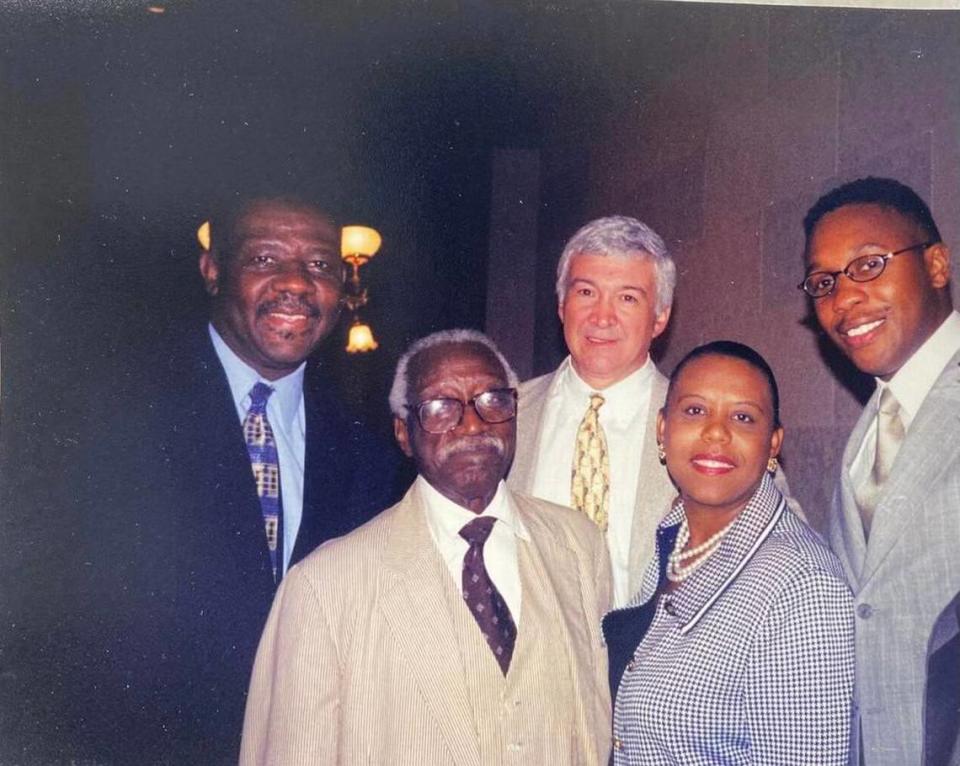Richard E. Fields, pioneering South Carolina judge, dies at 103
Judge Richard E. Fields, a native of Charleston and a kindhearted, trailblazing giant in the South Carolina legal community, died on March 3, aged 103.
Born to an illiterate father and a mother with a fifth-grade education, Fields went on to become the first Black elected judicial official in the entire Southeast. As a lawyer and municipal, family court and ultimately circuit court judge, Fields broke barriers in South Carolina.
He was a graduate of Avery Institute, West Virginia State College (now West Virginia State University), and Howard University School of Law. Fields had said he was inspired to study law after reading the autobiography of James Weldon Johnson, an early leader of the NAACP.
There were no other African Americans practicing in Charleston when he opened his law practice and became a litigator in Charleston in 1949, and only one other person of color practiced law in South Carolina at that time, according to his obituary.
But Fields found mentors and friends who he said taught him the art of practicing the law and who he credited with encouraging him to accept the appointment to the City of Charleston municipal judgeship in 1969, Fields said in an interview with the Charleston Bar.
“I thought I could,” Fields said in the interview. “And as I got into it, I knew I would.”
The road for the young lawyer was not always smooth. Segregation was still the de facto law of the land throughout much of South Carolina until the 1970s.
While on business at the Orangeburg County courthouse early in his career, Fields once described how the court clerk had to summon a janitor to show Fields the way to a basement restroom. The next time he was in that courthouse, he recalled, was as a judge when everyone stood as he entered the room.

After serving as a municipal court judge in Charleston from 1969 to 1975, Fields was elected and served as a Family Court Judge from 1975 to 1980. He was elected and served as South Carolina circuit court judge, Ninth Judicial Circuit, from 1980 until his retirement in 1992, when he resumed a private practice in Charleston.
He is remembered for being a champion of justice while remaining an openhearted and compassionate mentor and role model to many.
Outside of the courtroom, Fields was active in all spheres of public life, from the religious and charitable to the political.
He was a longtime and active member of the Centenary Methodist Episcopal Church, later named Centenary United Methodist Church. Among the positions he held in the church, Fields served as treasurer from 1950 until 2021.
When the white and Black conferences of his church merged in the late 1960s and early 1970s, Fields was a member of the Merger Committee in South Carolina and Chairman of the Merged Council on Ministries.
In 1950, Fields, along with several other Black citizens, formed the Charleston County Political Action Committee for the purpose of organizing Black voters, educating them about the ballot, and electing Black Americans to political office. Fields also conducted legal work on behalf of the NAACP.
Among his many honors, Fields received the Order of the Palmetto, the state’s highest civilian honor, in 1980 from Gov. Richard Riley. Today, a portrait of him hangs in the Charleston County Courthouse. A Charleston County street was named in honor of his 100th birthday.
Fields was predeceased by his wife, Myrtle T. Evans. He is survived by his children: Mary Diane Fields Reed (Michael) and Richard E. Fields, Jr.
A wake service was held on Sunday, March 12, at the Centenary United Methodist Church in Charleston, South Carolina. It was followed by a private internment.

